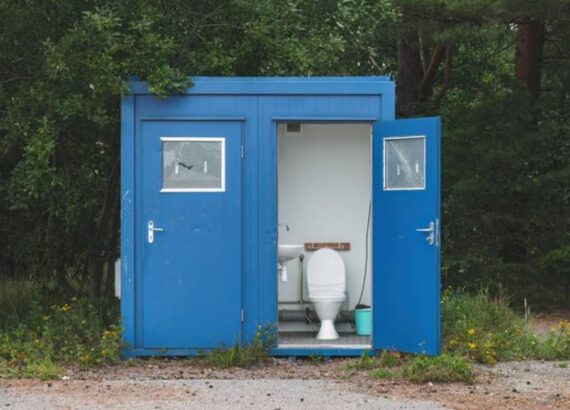Is Cbd Legal

Cannabidiol (CBD) is a natural compound derived from the hemp plant that has become increasingly popular in recent years for its potential health benefits. However, its legality has been a point of confusion for many people. The answer to the question of whether CBD is legal or not is complex and depends on a variety of factors, including where you live and how the CBD was derived.
In the United States, the legal status of CBD is determined by its source. CBD derived from hemp, which contains less than 0.3% THC (the psychoactive compound in cannabis), was legalized federally with the passage of the 2018 Farm Bill. This means that CBD products made from hemp are legal under federal law, as long as they meet certain requirements, such as being produced by a licensed grower and containing less than 0.3% THC.
However, Is Cbd Legal derived from marijuana, which contains more than 0.3% THC, is still illegal under federal law. Despite this, some states have legalized marijuana for both medical and recreational use, and CBD products derived from marijuana may be legal in these states as well. It’s important to note that even in states where marijuana is legal, there may still be restrictions on the use and possession of CBD products.
It’s also worth noting that the FDA has not yet approved CBD for any specific medical conditions, and it is illegal to market CBD products as dietary supplements or to make health claims about them. This means that while Is Cbd legal under certain circumstances, companies selling CBD products must be careful not to make any false or misleading claims about their products.
In summary
In summary, the legality of CBD is a complex issue that depends on a variety of factors. If you’re interested in using CBD products, it’s important to do your research and make sure that you’re purchasing from a reputable company that follows all relevant laws and regulations. It’s also a good idea to consult with a healthcare professional before using CBD, especially if you’re taking any medications or have any underlying health conditions.
State laws on CBD
State laws on CBD can vary greatly depending on where you live. While the 2018 Farm Bill legalized hemp-derived CBD with less than 0.3% THC at the federal level. Individual states have the power to set their own laws and regulations regarding CBD. This can lead to confusion and inconsistencies for consumers, as well as for businesses that produce and sell CBD products.
Some states have taken a very permissive approach to CBD, legalizing it for both medical and recreational use. For example, states like Colorado and California have legalized marijuana for recreational use. and CBD products derived from marijuana are also legal in these states. Other states have only legalized CBD for medical use, and may have strict regulations on who use it and how it can obtaine.
On the other hand, some states have taken a more restrictive approach to CBD. In some states, CBD is only legal for use in certain medical conditions. And may only obtained through licensed dispensaries. Other states have explicitly banned CBD products altogether, even if they are derived from hemp and contain very little THC.
It’s important to note that state laws regarding CBD can change frequently and may be subject to interpretation by law enforcement and regulatory agencies. It’s important for consumers and businesses to stay up-to-date on the latest laws and regulations regarding CBD in their state. And to consult with legal professionals if they have any questions or concerns.
In summary, state laws on CBD can vary greatly, and it’s important to be aware of the laws and regulations in your state before purchasing or using any CBD products.
Marijuana-derived CBD
CBD derived from marijuana is still illegal under federal law. As marijuana is classified as a Schedule I substance under the Controlled Substances Act. However, some states have legalized marijuana for both medical and recreational use. And CBD products derived from marijuana may be legal in these states as well.
It’s important to note that CBD derived from marijuana contains more than 0.3% THC. Which is the psychoactive compound in cannabis that produces the “high” associated with marijuana use. This means that products containing marijuana-derived CBD may produce intoxicating effects and should use with caution.
While the legal status of marijuana-derived CBD varies by state . It’s still important for consumers to ensure that they are purchasing products from reputable sources. Some companies may falsely label their products as containing CBD derived from hemp. When in fact they contain marijuana-derived CBD or other substances that are not legal. It’s important to carefully read labels and research companies before purchasing any CBD products.
Additionally, even in states where marijuana is legal, there may be restrictions on the use and possession of CBD products. It’s important to be aware of any regulations or restrictions in your state and to consult with legal professionals if you have any questions or concerns.
In summary, CBD derived from marijuana is still illegal under federal law. But may be legal in some states that have legalized marijuana for medical or recreational use. Consumers should use caution when purchasing and using these products. And be aware of any regulations or restrictions in their state.

FDA regulations Is Cbd Legal
The FDA has not yet approved CBD for any specific medical conditions. And CBD products are not currently regulated by the FDA in the same way that drugs and dietary supplements are. However, the FDA has approved a CBD-based drug called Epidiolex for the treatment of two rare forms of epilepsy. This means that Epidiolex is the only CBD product that is currently approved by the FDA for any medical use.
The lack of FDA regulation on CBD products means that there is no standardized testing or labeling process for these products. This can make it difficult for consumers to know what they are getting when they purchase CBD products. Some products may contain more or less CBD than advertised. Or may contain other substances that are not listed on the label.
Additionally Is Cbd Legal
Additionally, the FDA has issued warning letters to companies that make false or misleading claims about the medical benefits of their CBD products. It’s important for consumers to aware that many of the health claims made about CBD products are not backed by scientific evidence.
The FDA has also expressed concerns about the potential risks of using CBD products. While CBD is generally considered safe, it interact with other medications and may cause side effects such as dry mouth. diarrhea, and changes in appetite or weight. The long-term effects of using CBD products are not yet fully understood. And more research is need to determine the safety and effectiveness of these products.
In summary, while the FDA has approved a CBD-based drug for the treatment of epilepsy. CBD products are not currently regulated by the FDA in the same way that drugs and dietary supplements are. Consumers should be aware of the potential risks and lack of regulation surrounding CBD products. And should always consult with a healthcare professional before using these products.
Restrictions on CBD
While CBD is legal at the federal level if it’s derived from hemp and contains less than 0.3% THC. There are still some restrictions on its use and sale.
For example, some states have restrictions on the sale of CBD-infused food and beverages. In some cases, these restrictions are due to concerns about the safety of adding CBD to food and drinks. As well as the lack of FDA regulation on these products. Other states have banned the sale of CBD-infused food and beverages altogether.
Additionally, some employers have policies in place that prohibit the use of CBD products. This is because CBD may contain trace amounts of THC. Which can show up on drug tests and lead to a positive result. While the amount of THC in CBD products is usually very low. It’s still important for consumers to be aware of this risk.
There are also restrictions on the marketing and labeling of CBD products. The FDA has issued warning letters to companies that make false or misleading claims about the medical benefits of their CBD products. And companies must be careful in how they advertise their products.
Finally, it’s important to note that CBD products may still be illegal under state law in some cases. For example, in Idaho, CBD products are only legal if they contain 0% THC. While in South Dakota, all forms of CBD are still illegal.
In summary, while CBD is legal at the federal level if it’s derive from hemp and contains less than 0.3% THC. there are still some restrictions on its use and sale. Consumers should be aware of any restrictions in their state and should always purchase CBD products from reputable sources.
Law enforcement and CBD
Law enforcement and CBD can be a complicated issue, as the legal status of CBD can vary by state and local jurisdiction.
While CBD is legal at the federal level if it’s derive from hemp and contains less than 0.3% THC. Some law enforcement agencies may still treat CBD products as illegal if they are unable to distinguish between hemp-derived CBD and marijuana-derived CBD.
In some cases, law enforcement may seize CBD products and conduct lab tests to determine whether they contain THC. This can lead to legal issues for both consumers and retailers, particularly in states where marijuana is still illegal.
It’s important for consumers to be aware of the legal status of CBD in their state and to purchase products from reputable sources. Additionally, consumers should prepared to show documentation. Or proof of purchase if they are carrying CBD products in states where they may be subject to scrutiny by law enforcement.
Overall, the legality of CBD can be a complex issue. and consumers should exercise caution when using and transporting these products.
Recent legal developments
There have been several recent legal developments related to CBD at both the federal and state levels.
At the federal level, the 2018 Farm Bill removed hemp and hemp-derived products, including CBD. From the list of controlled substances. This has made it legal to produce and sell hemp-derived CBD products across the United States, as long as they contain less than 0.3% THC.
In 2019, the FDA held a public hearing on CBD regulation and issued a statement indicating that it was exploring pathways for CBD to be lawfully marketed as a dietary supplement or food additive. However, the FDA has yet to issue clear regulations on CBD. And many companies have continued to market and sell CBD products in a legal gray area.
At the state level, there have been several notable developments related to CBD. For example, in 2020, Virginia passed a law that legalized the sale of CBD products in the state, while New York City began cracking down on businesses selling CBD-infused food and beverages.
In addition, some states have taken steps to allow the production and sale of marijuana-derived CBD products. For example, in 2020, Illinois passed a law that allows for the production and sale of marijuana-derived CBD products, while New York legalized recreational marijuana and allows for the production and sale of CBD products derived from marijuana.
Overall, the legal status of CBD continues to evolve, and consumers should stay up to date on the latest developments in their state and at the federal level.
Buying and using CBD
When it comes to buying and using CBD, there are a few key things to keep in mind.
Firstly, it’s important to purchase CBD products from reputable sources. Look for companies that provide third-party lab test results and use high-quality ingredients.
It is essential to have knowledge regarding the legality of CBD in your state. While CBD is legal at the federal level if it’s derive from hemp and contains less than 0.3% THC, the legal status can vary by state and local jurisdiction.
When using CBD products, it’s important to follow the instructions on the label and start with a low dose to gauge your body’s reaction. CBD can interact with other medications, so it’s important to talk to your doctor before using CBD products if you are taking any prescription drugs.
You should also be aware of potential side effects of CBD, which can include dry mouth, drowsiness, and changes in appetite or mood.
Overall, CBD can a useful tool for managing certain health conditions or promoting general wellness, but it’s important to informed and cautious when buying and using CBD products.
Is Cbd Legal with Issues
While CBD has legalized at the federal level if it’s derive from hemp and contains less than 0.3% THC. There are still some legal issues surrounding its use and distribution.
One issue is the lack of clear regulations from the FDA. While the FDA has indicated that it’s exploring pathways for CBD to lawfully marketed as a dietary supplement or food additive . It has yet to issue clear guidelines or regulations for CBD products.
In addition, some states have their own regulations surrounding CBD, which can vary widely. Some states have legalized both hemp-derived and marijuana-derived CBD products. While others have more strict regulations or outright bans on CBD products.
Another legal issue is the potential for mislabeling or misrepresentation of CBD products. Some companies may market their products as containing more CBD than they actually do. Or may make false health claims about the benefits of CBD.
Consumers should also be aware of the potential for drug interactions when using CBD products. as CBD can interact with certain medications and cause adverse effects.
Overall, while CBD has legalized at the federal level. There are still legal issues and challenges surrounding its use and distribution. Consumers should informed and cautious when purchasing and using CBD products. And stay up to date on the latest legal developments in their state and at the federal level.
CBD and Drug Testing
CBD use can potentially affect drug test results. so it’s important for individuals to be aware of this if they are subject to drug testing.
While CBD itself is not typically teste for in standard drug screenings. Some drug tests may pick up on trace amounts of THC in CBD products. This is because some CBD products, particularly full-spectrum CBD products. Can contain small amounts of THC, which can accumulate in the body over time.
The amount of THC needed to trigger a positive drug test result can vary based on factors such as the individual’s metabolism. The frequency and amount of CBD use, and the type of drug test being use.
To minimize the risk of a positive drug test result. Individuals should look for CBD products that are labele as “THC-free” or “zero THC”. It’s also important to purchase CBD products from reputable sources that provide. third-party lab test results to ensure that the product contains no detectable THC.
If an individual is subject to drug testing and is unsure about the potential risks of using CBD products. They should consult with their employer or. The entity conducting the drug test to determine their policies and any potential consequences of a positive drug test result.
What is the best pole saw, and is CBD legal
In regards to the best pole saw, there are several options on the market. Depending on your specific needs and preferences. Some popular pole saw brands include Stihl, Husqvarna, and Remington. It’s important to consider factors such as blade length, weight, power source (gas, electric, battery). And overall durability when selecting a pole saw.
Regarding CBD legality, it depends on where you live. In the United States, for example, CBD is legal at the federal level as long as it is derived from hemp and contains no more than 0.3% THC. However, individual states may have their own laws and regulations surrounding CBD, so it’s important to research the specific laws in your area. Similarly, laws surrounding CBD can vary widely across different countries. So it’s always a good idea to check the regulations in your location.
Conclusion
In conclusion, while CBD has gained popularity in recent years for its potential health benefits. It’s important for individuals to be aware of the legal issues, potential side effects, and risks associated with its use.
While CBD has legalize at the federal level if it’s derive from hemp and contains less than 0.3% THC. There are still some legal issues surrounding its use and distribution. The lack of clear regulations from the FDA and varying state laws can make .It difficult for consumers to know what products are legal and safe to use.
Consumers should also be aware of potential side effects of CBD. As well as the potential for drug interactions and the possibility of CBD use affecting drug test results.
Despite these challenges, CBD can be a useful tool for managing certain health conditions . Or promoting general wellness when used responsibly and with informed consent. Individuals should educate themselves on the latest legal developments and guidelines for CBD use. Purchase products from reputable sources. And talk to their healthcare provider before using CBD products. If they have any underlying health conditions or are taking any medications.
As with any health or wellness product. It’s important to informed and cautious when using CBD and prioritize safety and responsible use.






